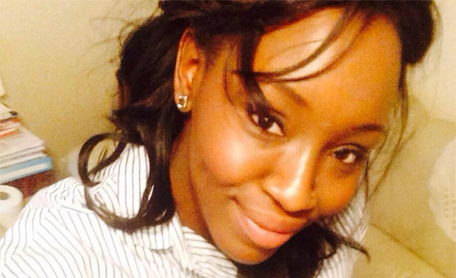GGood mental health goes far beyond the absence of mental health issues. It embodies our thoughts, our feelings and actions that allow us to enjoy life and overcome any challenges thrown our way.
The theme of this year’s Mental Health Awareness Week (8 to 14 May), looks to uncover why so many of us are surviving and too few are thriving with good mental health.
Janet’s story: “It suddenly dawned on me – I am my own bully”

I’ve always felt different. I’ve always felt like the feelings I had were not ‘right’ – at least that is how I felt as a 15-year-old.
As a teenager, I developed a routine where I would spend school days being everybody’s friend; the class clown; the happy-go-lucky person but when I arrived home, I would take off my ‘mask’ and suddenly feel like I was carrying the weight of the world on my shoulders and would cry myself to sleep most nights.
Pretending to be happy all the time was exhausting, and having to live up to everyone’s’ expectations became a chore. I felt like I wasn’t allowed to be sad, and that made me feel trapped. It took me just over a year to find the courage to book a doctor’s appointment. I remember trembling with fear as I walked into the doctors’ office before eventually breaking down and admitting that I’d been having thoughts of suicide. I was diagnosed with clinical depression, at the age of 16.
I spent my adolescence in and out of psychiatric units. I remember thinking that there was no one out there who could possibly understand what I was going through; why I was hurting myself; or why I hated my life so much. I wanted to snap my fingers and be ‘OK’ again but I simply couldn’t. It wasn’t easy, it wasn’t a choice, this was an illness and I was too young to understand the impact it was having on my life, my friendships, and my relationships.
For years I believed I was the only person in the world who experienced these kinds of feelings, when in reality, that wasn’t the case at all. I started to acknowledge negative thoughts before they turned into negative behaviours. I realised that I was the only person who could take control and help myself on the road to my recovery – until I was ready to face my demons and accept my reality, I would not be able to begin my journey to self-love and acceptance. Over time I began to challenge the detrimental voice in my head. I would ask her why she was being so horrible to herself and why she was always hiding behind her anxiety.
It suddenly dawned on me: I am my own bully, so I began to change the way I spoke to myself. I began to acknowledge my strengths and achievements, rather than focusing on my flaws. This new way of treating myself became effortless – I became my own best friend by picking myself up every time I was down and reminding myself how far I’d come. After a while, I could get to the root of why I felt a certain way and how I could adjust to those feelings and experiences. Through getting to know my inner self better, I could forgive myself for mistakes I had made, and in turn, become more loving and appreciating of myself.
For recovery to happen, I had to adapt and learn about my mental health condition. I learnt that a relapse doesn’t mean that I have failed, it means that my efforts and progress have counted for something – like practising how best to cope with life’s stresses in the moment, reminding myself that I deserve happiness and that I can reach my dreams. I didn’t expect my mental illness to disappear but I have worked with it to make the most out of my life.
There is no single definition of the concept of recovery for people with mental illness but the guiding principle is hope – the belief that it is possible to regain a meaningful life despite past experiences and current circumstances. My recovery didn’t happen overnight, living a happier and healthier life is something I am still mastering. However, I now feel ready to share my story with others in the hope that I might empower other people, who find themselves in a similar situation, to speak out about their experiences too.
I want to end my story by saying – to anyone who lays eyes upon this – that you are not alone. Whatever you’re facing now, you can get through it and achieve greatness and happiness. There are people out there who have been through very similar things to what you are experiencing at the moment and yet they have come out on the other side. In fact, their experiences have made them who they are today.
Janet’s story shared with permission from Mentalhealth.org.uk
Need support? Visit www.mind.org.uk, the mental health charity.
Image credit: www.123rf.com.












